Dictatorship DefinitionDictatorship is one of the six government forms that are designed to run a country. Dictatorship is a type of government where a sole individual or a small assembly acquires unrestrained authority without any functional constitutional order. In simpler terms, it is a government where only one person or group can make rules for the country, and nobody can question its decision and power. 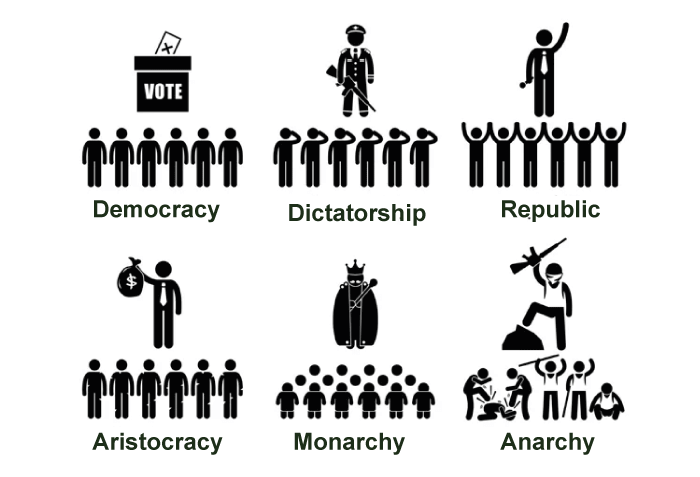
A political head that is in possession of absolute power is called a dictator. The three prominent totalitarian dictators well-known in history are Joseph Stalin from USSR, Benito Mussolini from Italy, and Adolf Hitler from Germany. Characteristics of DictatorshipOne party and One Leader for an InstitutionIn a dictatorship, only the party of the dictator is allowed to exist. The country is considered to have a single political program, which is supposed to be the dictator's party. The formation and functioning of other political associations are banned. 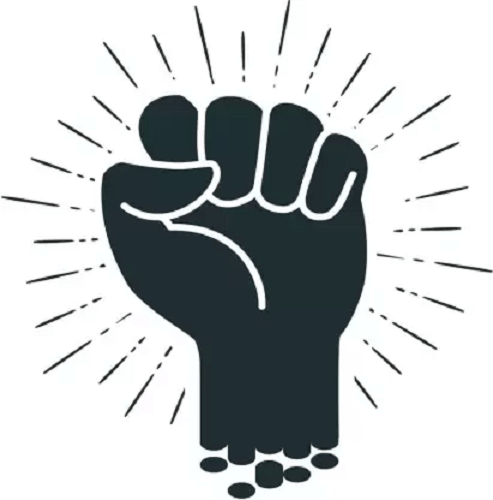
In a dictatorship, the dictators can even participate in activities deemed illegal in democratic government and do anything to suppress their opposition (if there is one). The leader/dictator demands the complete faith of his people and represents the values of national unity. He can make a final decision in any matter, and his word is above all. Nation above AllThe dictators typically respect their respective countries to an almost maddening extent. They have intense values of nationalism towards their country and perceive other countries beneath their own. For dictators, the country is one for which life must be sacrificed, and humans are purposeless creatures unless they become patriots. Totalistic StateA type of government that takes complete control over a country's citizens' lives is known as totalitarianism. One example of a totalitarian state is North Korea under the thumb of the Kim Dynasty. Activities from all sectors of human life, such as economic, social, educational, political, cultural, and religious, are tracked down by the sole government in a dictatorship. The fundamental objective of dictatorship is "Everything is for the state, nothing is outside state and nothing against the state". There is no individual identity or liberty for the common population. War is ReasonableThe glorification of war is a common idea for dictators. They believe that the advancement of the state could be only through war, and it gives the dictators a sense of power over others. According to the dictators, using brute force is the easiest way to gain national eminence. Many nationalist dictators have used war and violence to secure their command over other nations and rise in power. Preaching RacismThe dictators highly practice racialism and consider themselves or their community almost as a godly force. Hitler of Germany believed that Germans were a superior race and committed genocide to get rid of those he considered inferior. During WWII, dictators like Stalin and Hitler killed many in the name of religion, and they weren't afraid to sacrifice their own people for what they called a 'greater cause'. Therefore, dictatorship is also known as the mad doctrine. Absence of Civil LibertiesThe commoners do not have any individual rights, and they cannot question the authority of the dictator. The utmost obedience is expected from the people of the country. If they do not follow the laws applied by the dictator, they have to bear severe punishments. Unlike democracy, a dictatorship has no freedom of speech, choice, religion, or association. The state manages all aspects of awareness, such as schools, radio, newspapers, and even entertainment sources Types of DictatorshipsIn a dictatorship, a state may be led by a single body or a community. Based on the authoritative body, dictatorship has been divided into five categories by Barbara Gaddes, an American Political scientist. They are as follows: 
StratocracyAlso known as a military dictatorship, stratocracy came into existence in the 20th century. In this form of dictatorship, the military holds the ultimate authority or overall political power over a nation. Military dictatorships are led by the highest-ranking officer or a team of officers. Military dictatorships reject the policies of ministers and are ill-reputed for abusing human rights. There are many countries where military dictatorships have been established and are still practiced. For example, Pakistan lived under a military dictatorship for several years till 2008. Later, the civilian government was introduced in 2011, when the military dictatorship finally came to an end there. Absolute MonarchyThis is the form of government where an individual inherits the ruling authority over the state from their family. The external powers cannot question the decision of a monarch. The power of the monarch is not bounded by the laws set for common people. For example- countries such as Brunei and Oman are led by an absolute monarchy. Personalist RegimeA personalist dictatorship is an arrangement in which a single individual, either a political leader or military officer, is in control of a country's powers. In this regime, the dictator has more authority over the state than in other dictatorships. They have access to the government's treasures, and therefore, they can command the power politics in their own favor. The dictator might be a part of a political party or military, but the ultimate power lies in his own hands rather than in control of the group. Hybrid RegimeThere are countries where political parties commit electoral fraud so that the democratic system cannot come to power. This form of government is known as a hybrid dictatorship. It is also called illiberal democracy. The authoritative parties suppress their opposition. Corruption and harassment of the general public, and constraint on the media are happenings of this government system that acts as a democracy, but it is a dictatorship in reality. Hungary and Ukraine are examples of countries that have a system of hybrid dictatorships. One Party SystemThe system in which only one political party that has great authority over the country and its people is allowed to form a government is referred to as a one-party system. The government is often based on the past constitution. A single political party runs the country by winning elections continuously and suppressing the opposition parties. For example- the Communist Party is the only political group that is allowed to form government in China. Reasons/ Causes of DictatorshipHow is a country with a large population not able to fight the tyranny of its leader? There are reasons why the people remain powerless under the thumb of their leader. Dictatorship is said to be a strategy used by oppressors to subvert democracy. 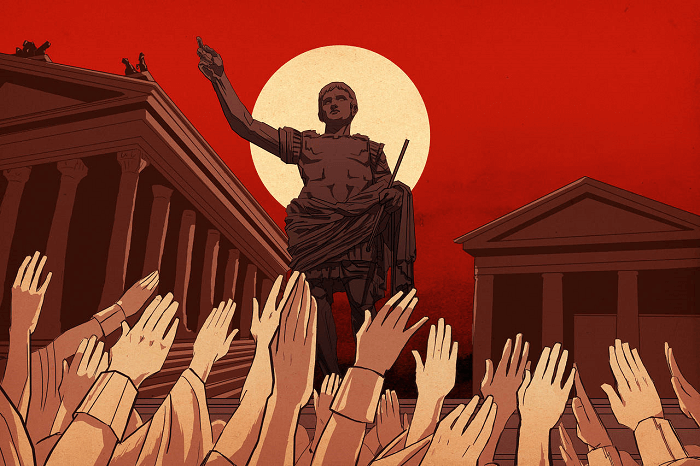
During the age of World Wars, many powerful countries, such as Italy, USSR, Germany, Spain, etc., were governed through a dictatorship. Later, when the war ended, dictatorship rose in other countries which were once colonized, such as Indonesia, Burma, Sudan, Egypt, and so on. Some of the notable causes of dictatorship are given below: Sense of Superiority in Undefeated PowersCountries such as Britain and France had colonized and looted other countries to develop their own resources and behaved arrogantly. Notably, Britain made strong speeches about self-determination, and on the other hand, they shamelessly followed a capitalistic regime and imperialized other nations. When Germany was defeated in WWI, it had to face criticism from the world, and this eventually led to a revolution in Germany. Retaliation was aroused among German citizens, resulting in many casualties and countries being mercilessly destroyed. When Germany faced severe humiliation, it led them to choose Hitler as their leader, and dictatorship was accepted in place of parliamentary democracy. Following this, many other countries switched to the trend of dictatorship. Men who gave hope to a NationFor many countries, democracy was a hectic and long procedure to acquire control, and therefore its supporters were seen as problems. They believed that dictatorship was an easy way to get hold of people's insecurities and exploit them. In many countries, people were dying during wars and plagues. Besides, defeated countries were not able to arrange resources for the deprived people. In these moments of desperation, ambitious men such as Stalin and Hitler gave high hopes to the public that their nation could become better by using violence against these countries that had wronged them (because they believed in a dictatorship). So, they (Stalin and Hitler) used military forces and manipulation of the masses to gain power. Democracy as an Unnecessary PolicyDemocracy was not proving to be the best and most advantageous policy for the country folks. Therefore, many countries disowned democracy and dictatorship came up to lead the country towards a "better" future. The general public found a purpose and significance in a dictatorship, and most of all, the defeated countries were not facing humiliation by victorious countries. The aspiring speeches of dictators were enough to make the people support unbounded killings and tyrannical regulations made by them. Hitler was successful in turning the rage of Germans into violence against the opposing powers after the Treaty of Versailles by bringing forth the values of national honor. The people were the least concerned about democracy and equal rights when the dictatorship was successfully proving their country's recognition. Failure of League of Nations: Losing Control over the Nations after Dictatorship Took PlaceLeague of Nations was not able to convince the people that democracy is a better policy than dictatorship. People were angry and would only listen to the commands given by dictators without second thoughts. Also, after the arrival of Hitler in power, fighting for democracy was a lost cause. Before Hitler, Mussolini was the leader who brought dictatorship in Italy to solve the problems that arose from democracy. On the other hand, Stalin oppressed people to submit to dictatorship in Russia. Advantages of Dictatorship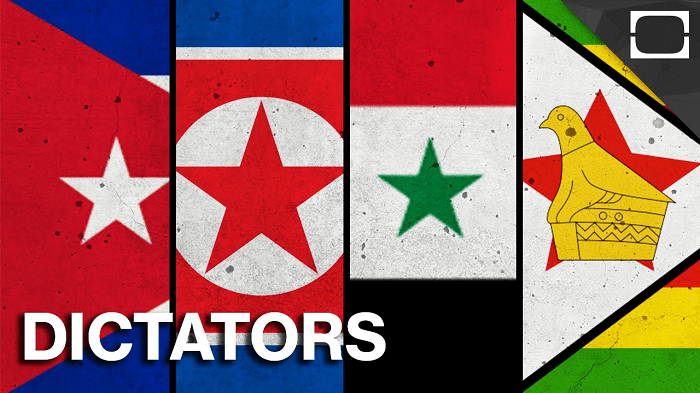
Decrease in Criminal OffencesThe rules and regulations in countries with dictatorship governments are very strict, and the general public would have to go through severe punishments if they committed a crime or broke even a small rule. The fear of the penalty or death in natives dampens their intentions of committing even petty crimes. Therefore, there are fewer crime rates in dictatorial countries as compared to democratic countries. Well-organized GovernmentEven the most insignificant laws are set with great contemplation, and only the selected rules are applied that are considered appropriate by the dictator. The citizens are expected to follow the rules at all costs. There is no requirement for the panel of ministers and judiciaries except for the leader to debate and discuss the enforcement of a law. The laws are made or abolished quickly and easily in a dictatorship. Therefore, dictatorial countries acquire more authority than democratic ones. Dictatorial Countries Develop Faster than Non-dictatorial OnesIn dictatorship policy, the leaders or dictators possess control over all aspects of nation-building, such as economic, religious, political, educational, and matters of national safety. Their objectives for the nation are already set, and they start to develop the country accordingly. They have no other concerns than to look after their country and its people as the legislative system is already well organized, and dictators can keep an eye on all activities of each and every individual. Dictatorship is in times of EmergencyThe responsibility of the whole nation lies in the hand of only one person. Therefore, the dictator needs to take reasonable action during his course period. If something goes wrong with the decision taken by him, he would have to take complete responsibility for it. However, with the right decisions and orders, a dictator can give a better shape to his country. Disadvantages of Dictatorship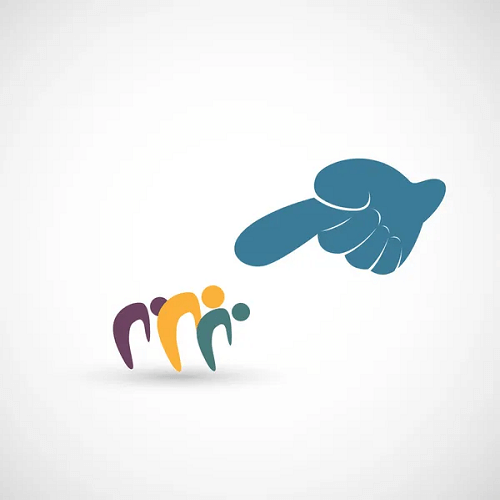
The ConclusionDictatorship is the policy that allows a particular individual, group, or government to rise in power and make the (called dictators) see democratic states as their opposition. However, the natives live in depression and fear as they don't have any rights to enjoy freedom and have to live under the thumb (or control) of their master until they die or get killed.
Next Topic#
|
 For Videos Join Our Youtube Channel: Join Now
For Videos Join Our Youtube Channel: Join Now
Feedback
- Send your Feedback to [email protected]
Help Others, Please Share










